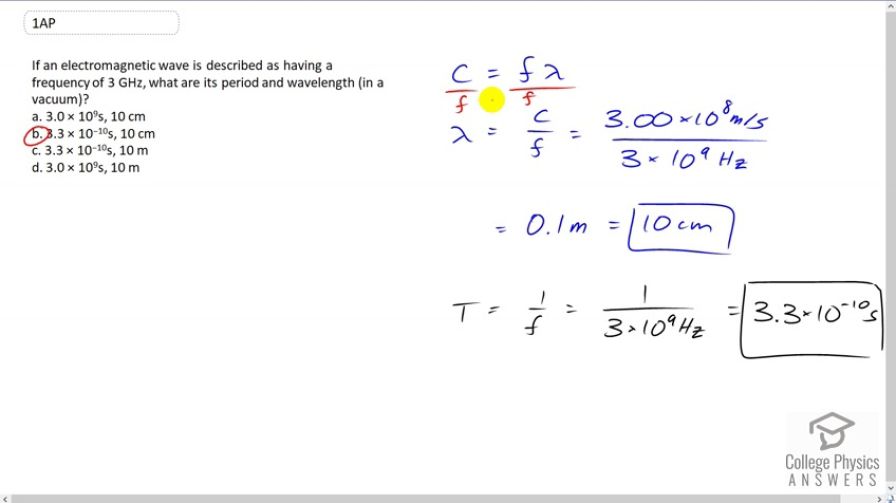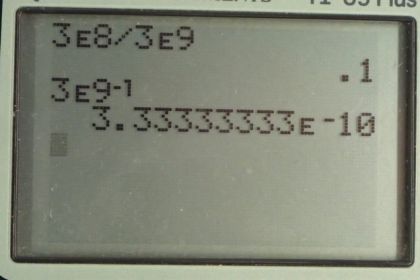Question
If an electromagnetic wave is described as having a frequency of 3 GHz, what are its period and wavelength (in a vacuum)?
- , 10 cm
- , 10 cm
- , 10 m
- , 10 m
Final Answer
(b)
Solution video
OpenStax College Physics for AP® Courses, Chapter 24, Problem 1 (Test Prep for AP® Courses)

vote with a rating of
votes with an average rating of
.
Calculator Screenshots
Video Transcript
This is College Physics Answers with Shaun Dychko. The wave equation tells us the speed of light equals frequency times wavelength. We can solve this for lambda by dividing both sides by F. And so the wavelength is speed of light divided by frequency. So it’s 3 times 10 to the 8 meters per second divided by 3 gigahertz, which is 3 times 10 to the 9 hertz, which gives a wavelength of 0.1 meters, which is 10 centimeters and that narrows our options down to A, B or D because they all have 10 centimeters. Option C is excluded because it has units of meters, actually D is also excluded for units of meters. So we've narrowed it down to A or B. So then the next question is, what's the period that's going to be the reciprocal of frequency? So that's 1 over 3 times 10 to the 9 hertz, which is 3.3 times 10 to the minus 10 seconds. And so the answer is B.
